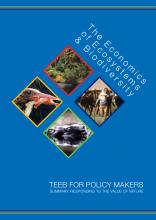Report on results of rat control trials in the Tokelau Islands from 30 July to 20 September 1970 and recommendations for a comprehensive scheme of rat control

BRB
Available Online
The visit to the Tokelau Islands described below is the third carried out in a study of ecology, rat control and related problems. The first visit in 1966/67 (Wodzicki 1968 A) was devoted primarily to the study of the ecology of the Polynesian rat (Rattus exulans) and the environment, including the animals and the vegetation, of Nukunonu atoll. The main objects of the second expedition in April-June 1968 (Wodzicki 1968 B) were the initiation of a long-term investigation of rat damage on all three atolls and the training of two men from each island as rat control operatives. The present visit was planned with the following tow main objectives in mind: 1. the study of the relationship of rat damage to various coconut varieties growing in the Tokelau Islands; and 2. the conduct of rat control trials with the view of preparing for the Administrator, Tokelau Islands (Mr. Richard B. Taylor) recommendations for a rat control scheme suitable for the Tokelau Islands. The preliminary analysis of data collected during the fifteen months long investigation of rat damage in 1968/69 on the three atolls suggested that palms belonging to some varieties may be more prone to rat damage then others (Wodzicki 1970). It seemed important that we learn more about the character of palms growing on the three atolls. With regard to rat control, trials with various kinds of poisons have been carried out since our first visit to the Tokelaus in 1966/67 (Wodzicki 1968 A). However, during our first two visits knowledge of rat ecology was not sufficiently advanced to allow for more sophisticated tests. Since the author's 1968 visit, the important work on rat control in the Gilbert and Ellice Islands by F.J. Smith (Smith 1969) has become available. This information and our knowledge of rat ecology, gradually acquired since the beginning of the Tokelau Islands rat project, now makes possible a programme that could become the basis of a practical rat control scheme for the three islands. As most of the previous work had been carried out on Nukunonu atoll only, it was felt that half of the time during the visit should be spent on Fakaofo and th remainder on Atafu. Following a brief descrption of these trials is the writer's recommendation of a rat control scheme submitted to the Administrator, Tokelau Islands. Finally, some other observations on plants, animals and related aspects are friefly reported and collections made for the Botany Division, D.S.I.R. and the Dominion Museum are briefly mentioned.



